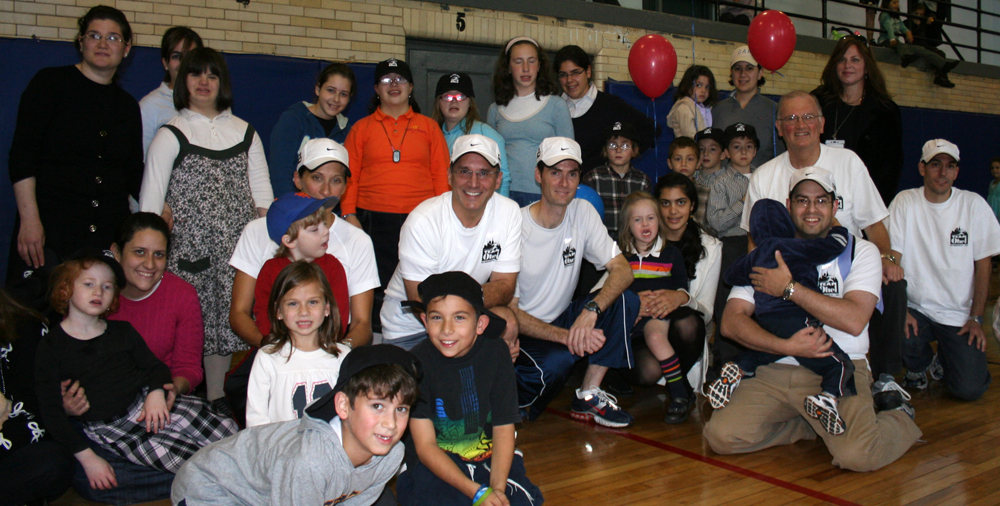Running, shooting and scoring for charities
Sports as the new fundraising
By Michelle Bortnik
Issue of October 30 2009/ 12 Cheshvan 5770
Martin Bodek had been running the NYC Marathon for 13 years when he finally ran out of steam. Then Derek Saker, director of communications for OHEL Children’s Home and Family Services, approached him and suddenly Bodek was running for something entirely different.
In this year’s NYC marathon on Sunday, Bodek will be running for Ohel alongside participants running for a host of other Jewish charities in what has become a popular way to fundraise: athletics.
“There seems to be a shidduch between fundraising and athletics,” explained Saker. “People that are involved in athletics are generally socially dynamically-motivated people. From a cause perspective it’s always good to have these people on board because they are self-motivated and very committed.”
The 2009 NYC Marathon marks the first time Ohel will be represented. The organization is fielding 13 runners; the oldest, Wallace Gottlieb, 65, is running the marathon for the first time.
“Professional runners run marathons maybe ten times and their motivation is getting a better time, but for somebody that is semi-professional they need a bigger motivation — one that is both a physical motivation and a mental motivation,” Saker said. “We hope that participating in the NYC Marathon becomes a foundation to engage more runners and volunteers in next year’s marathon.”
Bodek said that he hoped the message he was giving by running in the NYC Marathon was that Orthodox Jews, “are part of a tapestry of a society and we can easily engage in modern society without sacrificing any of our standards.”
“I remember a professor of mine showed up to class the day after the marathon and said he had done it and I was amazed,” Bodek said. “I figured if he can do it so can I.”
Four members of the Young Israel of West Hempstead and Congregation Eitz Chaim will also be running in this year’s race: Abraham Borenstein, Lisa Kirschner, Chani Nadboy and Shira Weiss. They will be running for Blue Card, an organization that aids destitute Holocaust survivors.
“It elevates our experience beyond the physical achievement,” explained Borenstein, via email. “Knowing that your efforts are helping destitute Holocaust survivors or anyone who is less fortunate is extremely rewarding. As you are running mile 20, with six more to go, and your legs tire and you feel like quitting, you think of those who you are helping, the commitment you made to them, and those who donated to their cause. Somehow, the next six miles are just so much better and rewarding.”
Marathons aren’t the only way for innovative charities to raise money, of course. On October 11, Tel Aviv’s Maccabi Electra team played the New York Knicks to benefit Migdal Ohr, an Israeli orphanage and educational system. Nine days later the Israeli basketball team played the Los Angeles Clippers in their hometown’s Staples Center. Almost 30,000 tickets were sold between the two arenas.
“When you can take sports and use it as a vehicle to get your message across, you’re fundraising without making them feel they are giving so much because it’s entertainment,” explained Robert Katz, the executive vice president of American Friends of Migdal Ohr.
“Basketball was not the message here, it was the vehicle to educate people of the holy work of Migdal Ohr,” said Katz. “We wanted the biggest, most high-profile form to get our message across and we went where no one went before.”
Athletic tends to be a positive hook in fundraising, said Katz, because it has the power to attract a diverse selection of people while physically getting them involved.
“There’s a natural affinity for sports in this country,” Katz noted. “Here it works as the unifier by which the community comes together and shares a united experience for a greater cause.”
Many times people choose to participate in marathons to support a specific cause. Derek Saker explained.
“There is also the idea that the nature of running or something athletic is something healthy, and it resonates well,” he added.
The Friendship Circle, a national organization that provides assistance and support to families of children with special needs, holds an annual walkathon known as Walk4Friendship, in several of their Friendship Circle locations. They believe people like to physically feel they are making a difference; walking has no age requirement so it is open to everyone. Similarly, the Making Strides Against Breast Cancer Walk is an annual event at Jones Beach, in Central Park and other locations.
Chai Lifeline uses sports activities as a fundraising hook as well. Every summer the organization’s Swimathons are held in Jewish camps across America.
“The activity itself is really secondary to the idea of teaching chessed and raising money,” explained Melanie Kwestel, director of communications for Chai Lifeline.
Chai Lifeline also runs Team Lifeline, a marathon for Chai Lifeline in Miami and Las Vegas.
“Here the race itself becomes important and raising money for Chai Lifeline becomes the vehicle for participation,” Kwestel elaborated. “People are really interested in fitness, affiliating in a Jewish group and raising money, so they all go hand in hand.”
The marathon has been held for the last five years. Runners between the ages of 12 to 75 can choose to run the 13.1-mile half-marathon or the full 26.2 miles.
Next week Team Lifeline, represented by five runners, will participate in NYC’s Marathon for the first time. Between the three races, Team Lifeline will have a total of 300 runners participate this year.
“Larry King has a brilliant line,” Katz said. “‘Sports is the most important unimportant thing in our lives,’ it provides for great entertainment and release. At the end of the day it’s not important who wins or loses but it’s a wonderful release.”






